Volkswagen Golf: 50 years of an icon
As the Golf celebrates half a century of production, we take a look back at its impressive history

With more than 37 million Volkswagen Golfs produced, it’s the third most popular car ever made.
Whether you, a family member or a friend has had one, the Golf is so well-known that there’s a good chance most of us have an attachment to it in one way or another.
This year also marks an impressive 50 years since the Volkswagen Golf was introduced, with a history spanning eight generations. To mark the occasion, Volkswagen is introducing a new facelifted version, bringing a redesigned look, technology improvements and a much-improved plug-in hybrid model to this popular hatchback.
Let’s take a look at 50 years of the Volkswagen Golf.
The first Golf tees off– 1974
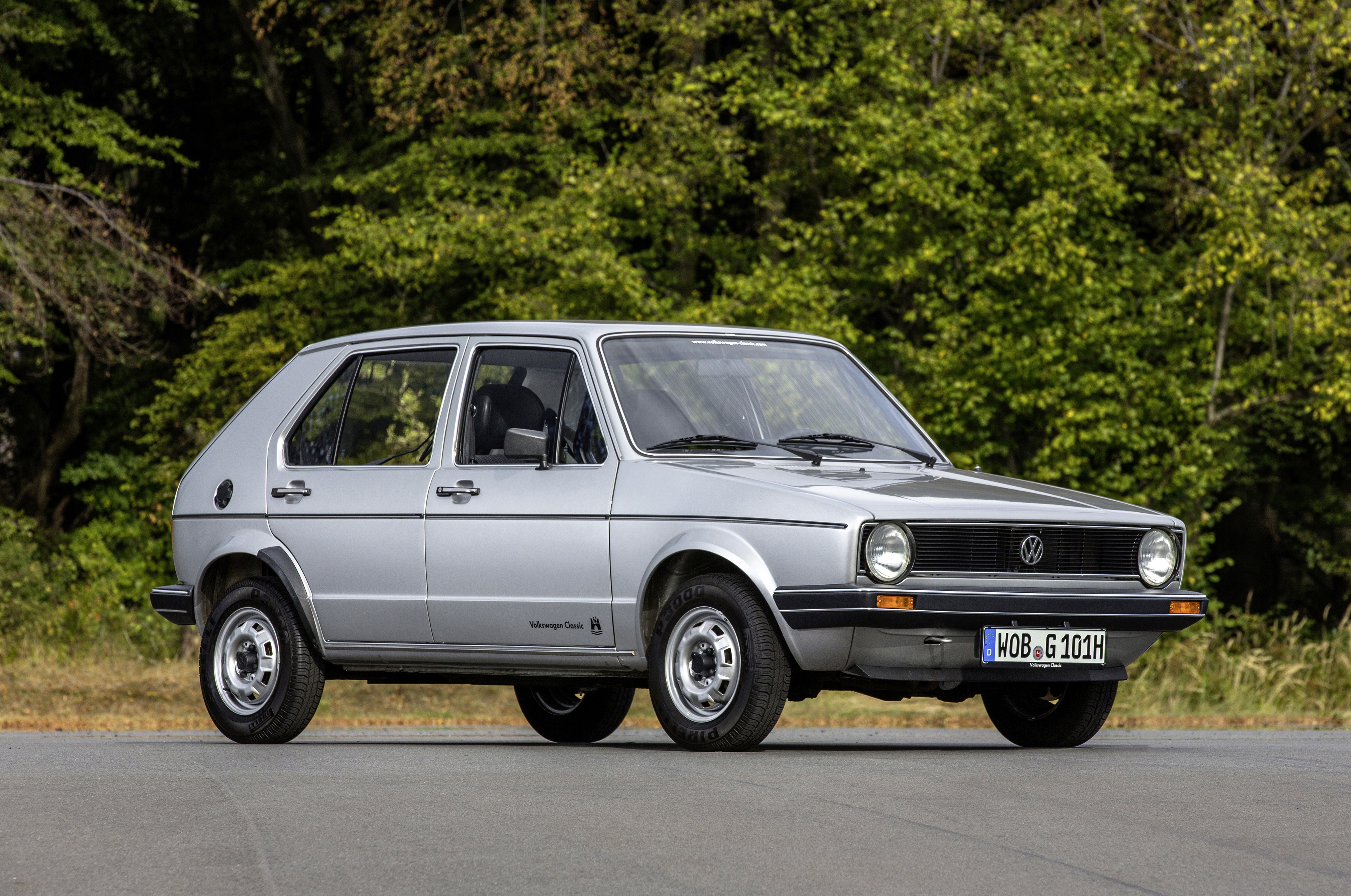
It was back in March 1974 that the first Volkswagen Golf was produced. Penned by legendary car designer Giorgetto Giugaro, it was designed as a successor to the original Beetle, though would be sold alongside it for some years.
With its more modern front-wheel-drive and front-engined layout, it was a far more practical car than the Beetle and would become an instant hit. In 1976, Volkswagen would expand the line-up with the famed Golf GTI hot hatch, which has remained an integral part of the line-up ever since.
Second time around – 1983
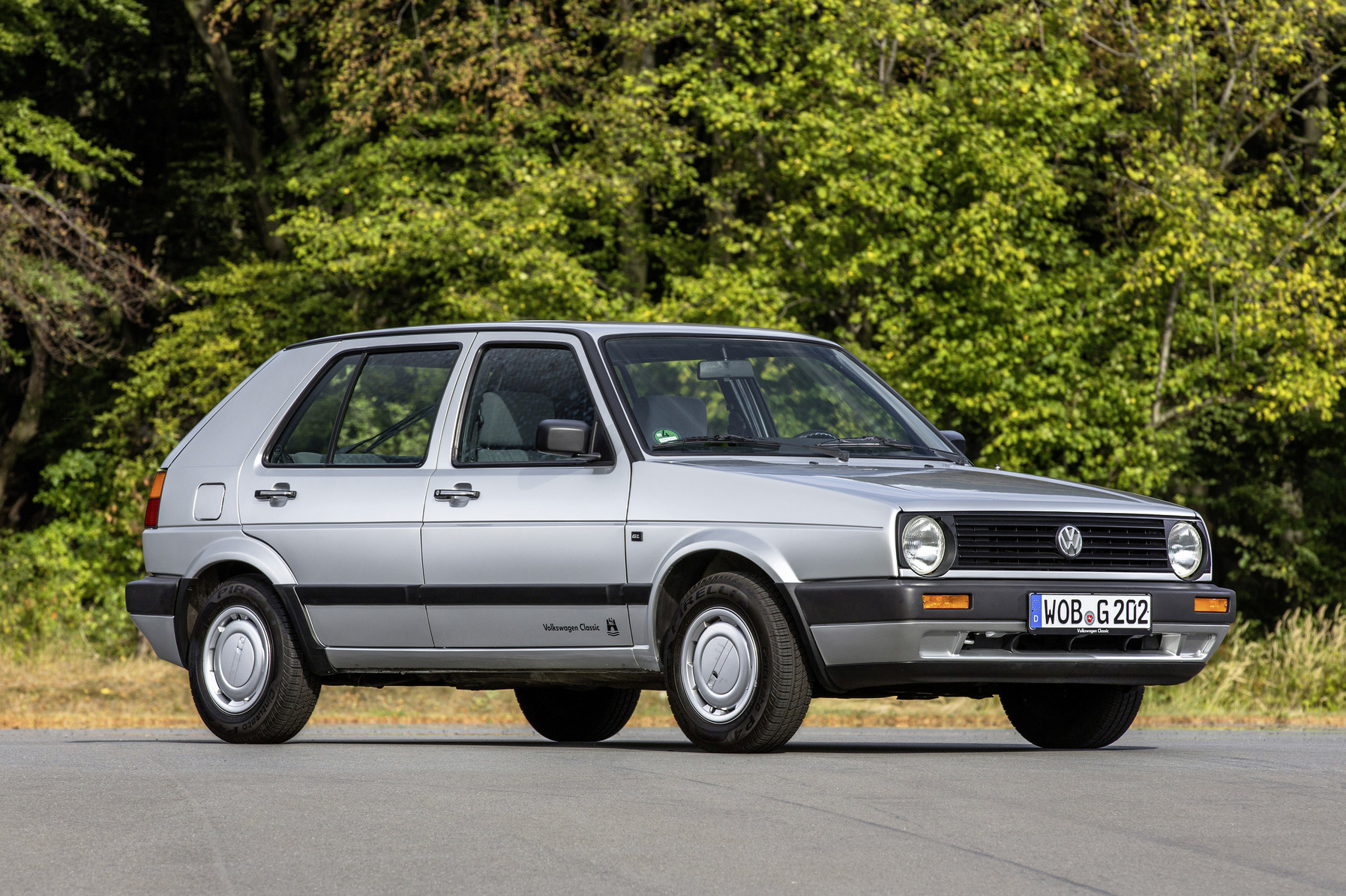
It was almost a decade before Volkswagen introduced its second-generation Golf, which was launched in 1983. The overall design wasn’t significantly changed, though the second Golf was larger and introduced various more modern technologies.
Features such as power steering, anti-lock brakes and 16-valve engines were all introduced, while the Golf’s overall design had evolved while still retaining the charm of the original. With 6.3 million produced, overall sales were just shy of the first-generation car that amassed just under seven million units.
Bigger engines and an estate for the third outing – 1991
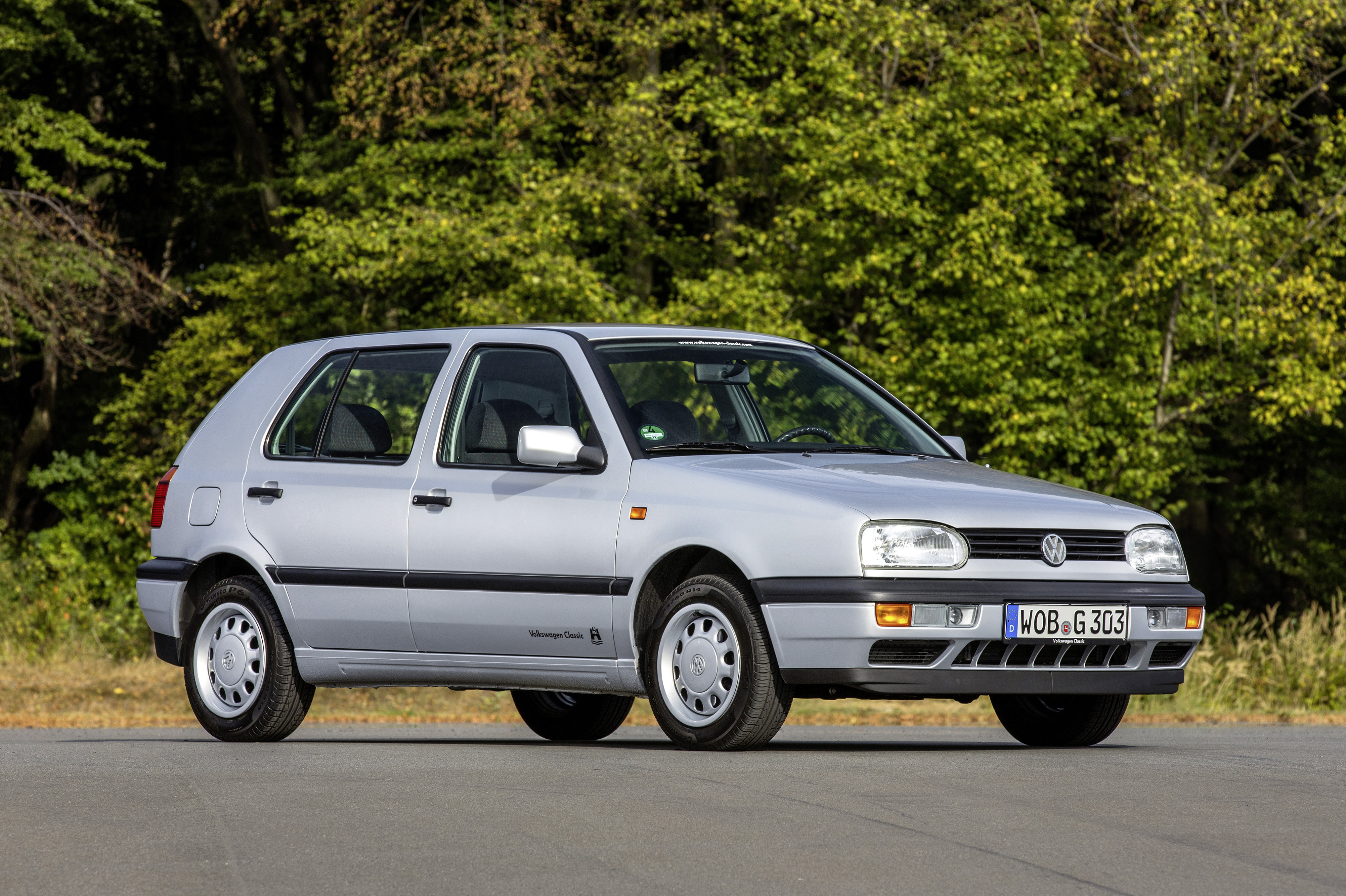
The third-generation Golf has gone down as one of the more unloved models in the Golf history, though sales still amassed 4.8 million overall. Launched in 1991, it was available in the broadest range of versions yet, including a three- and five-door hatchback, convertible and also a spacious estate car for the first time – the latter remaining a feature of the Golf ever since.
Alongside the GTI models, Volkswagen also introduced a flagship VR6 model, using a large 2.8-litre six-cylinder engine that was the largest to be fitted to a Golf yet.
The Golf goes upmarket in its fourth iteration – 1997
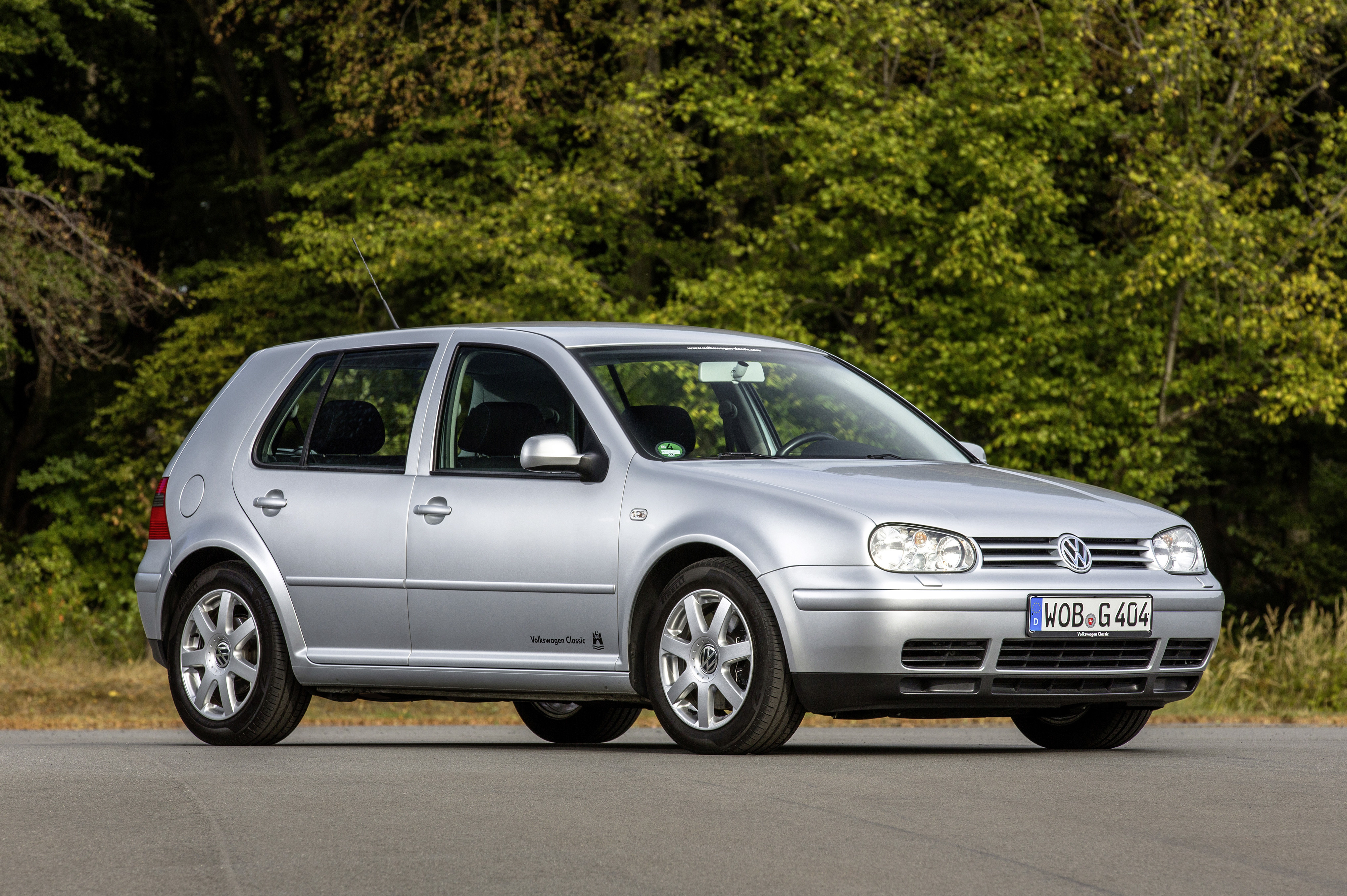
Volkswagen had experimented with making the Golf into a higher-quality car in previous editions, but the fourth generation of this family car represented a significant step up. If you’re looking for the cheapest used Golf now, it will be this one with usable examples available for just a few hundred pounds.
Renowned for its bulletproof diesel engines, this generation of Golf is also known for introducing Volkswagen’s first racing-derived ‘R’ model in 2002 with the Golf R32. Packing a 3.2-litre V6 VR6 engine, it was also the first production car to use a dual-clutch automatic gearbox (known as DSG), which is now commonplace across the Volkswagen line-up. Nearly five million were produced over seven years.
A return to brilliance with the Golf 5 – 2004
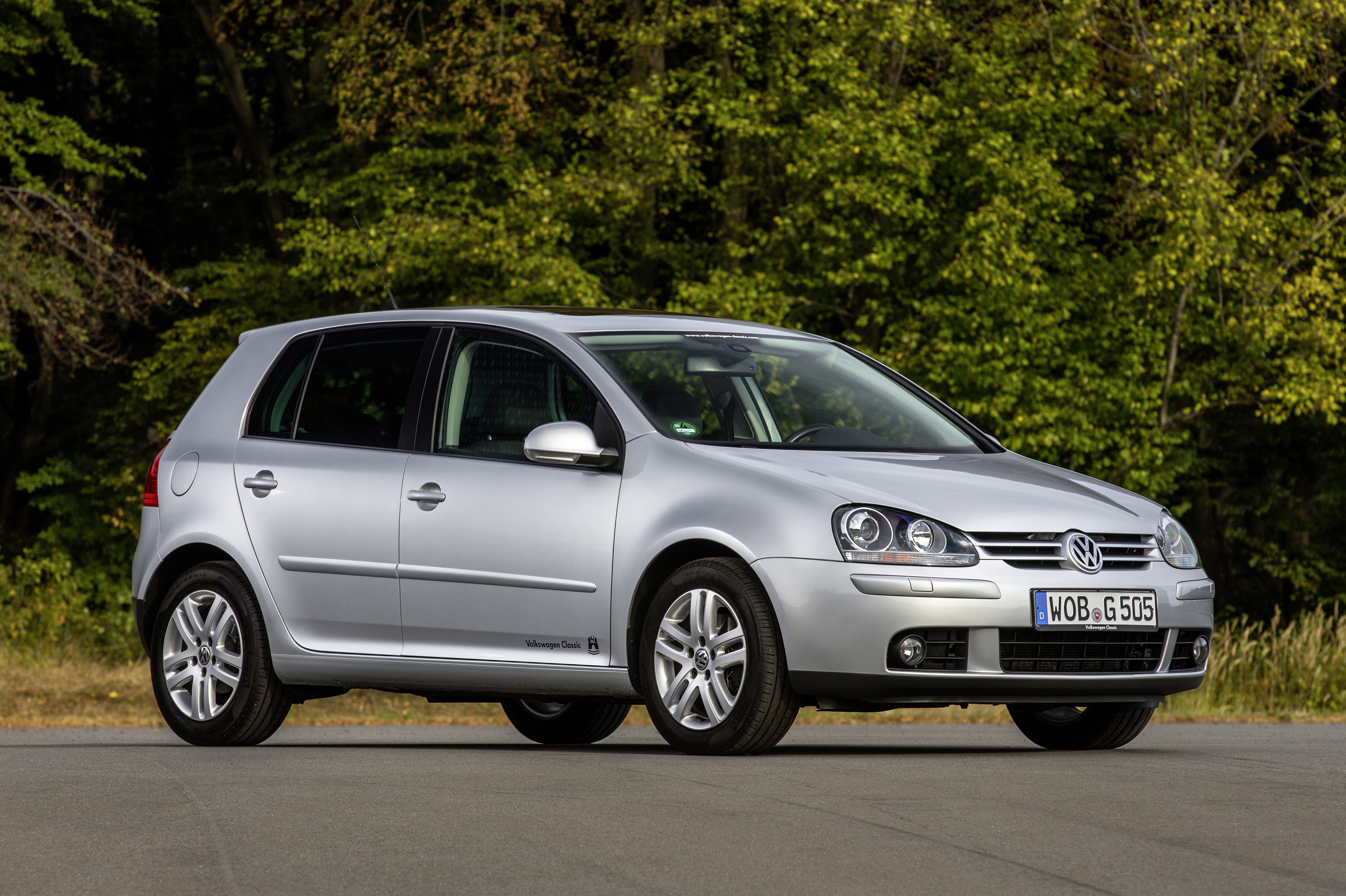
A particular high point in the Golf’s history is the fifth generation, introduced in 2004. It’s a far more modern-looking car than its predecessor and was much better to drive courtesy of an advanced suspension setup and stiffer construction.
The Mk5 Golf GTI with its 197bhp 2.0-litre petrol engine is a certified future classic, as is the GTI 30th Anniversary Edition, introduced in 2006 to celebrate three decades of the GTI. An additional bodystyle was also introduced in the form of the Golf Plus MPV, with 3.4 million examples of the Golf produced in this time, though its production run was fairly short.
The short-lived Golf 6 – 2008
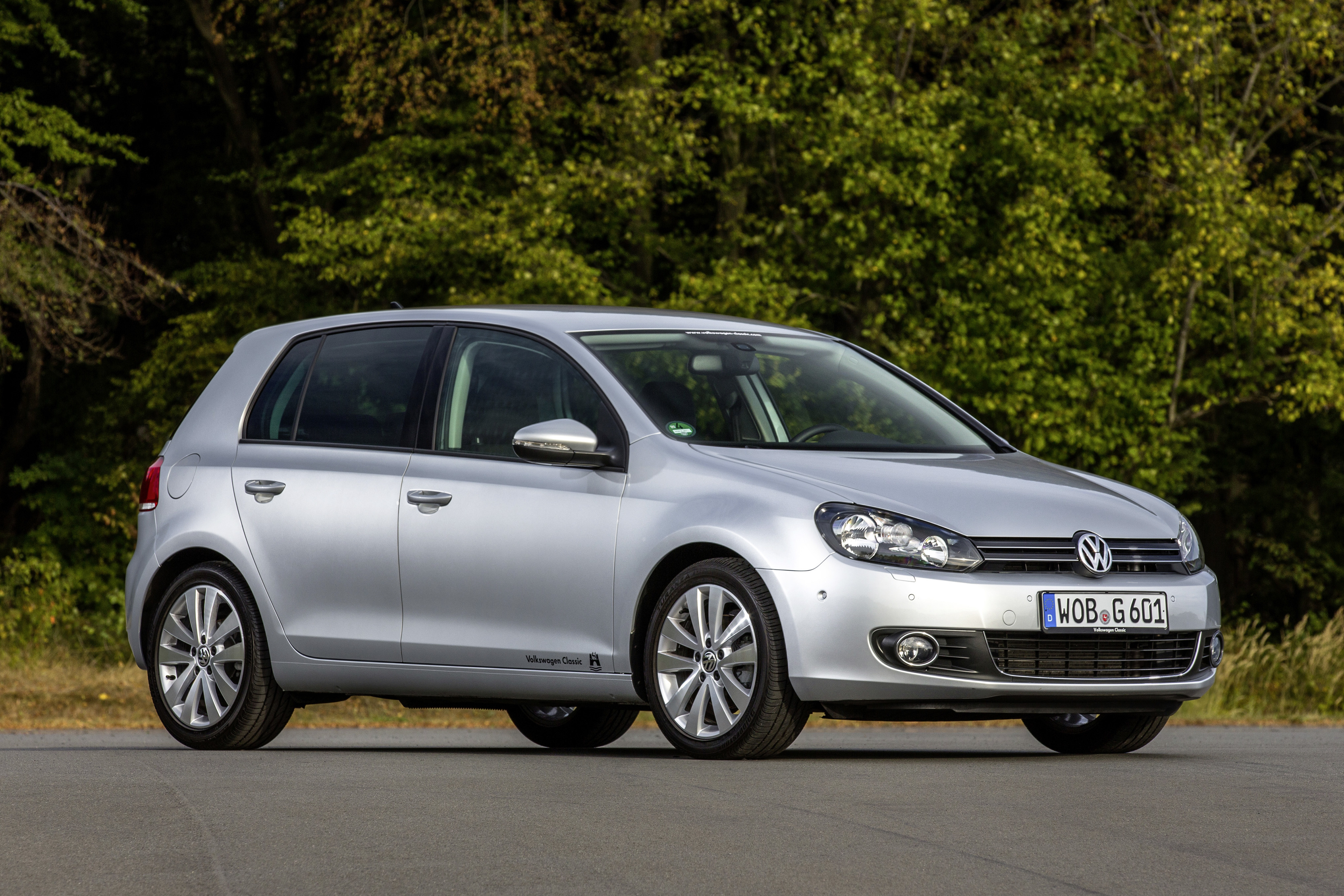
Come 2008 it was time for the introduction of the sixth-generation Golf, though it was more of a facelift of the previous model. It still came highly applauded, though, and even won 2009 World Car of the Year.
A range of safety and technology advancements made it a superb family car, while the GTI model was present and correct. The Golf R32 would also become the R, and would controversially adopt a smaller-capacity turbocharged 2.0-litre petrol engine. The Cabriolet also made a brief return with this generation. Just shy of three million were produced, though it was fairly short-lived compared to previous models.
The sensational Golf 7 – 2012
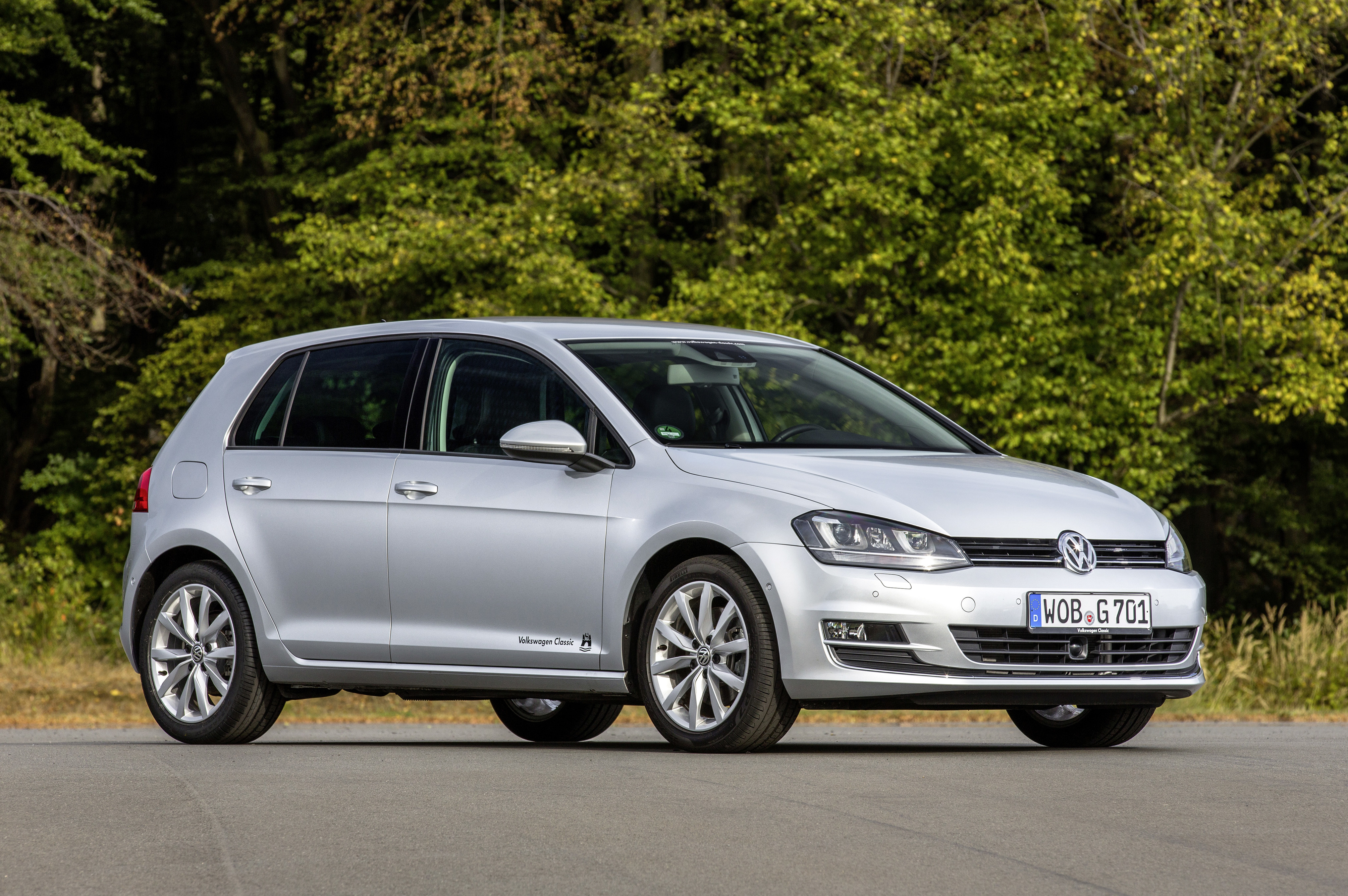
The seventh-generation Golf is still regarded as one of the best all-around cars ever made, and truly was a superb model from top to bottom. New underpinnings made the Golf much lighter than its predecessor, while a range of advancements such as LED lighting and autonomous emergency braking resulted in it being one of the most advanced hatchbacks around at the time.
There were lots of changes under the bonnet too, with the Golf available as a plug-in hybrid for the first time, while an electric e-Golf was also offered. There was plenty for performance car fans too, including the acclaimed 300bhp Golf R and limited-run GTI Clubsport S, which got a stripped-out interior and just two seats. It’s still regarded as one of the best hot hatches ever made. Around six million Golf 7s were produced over the years.
The digital Golf 8 – 2020
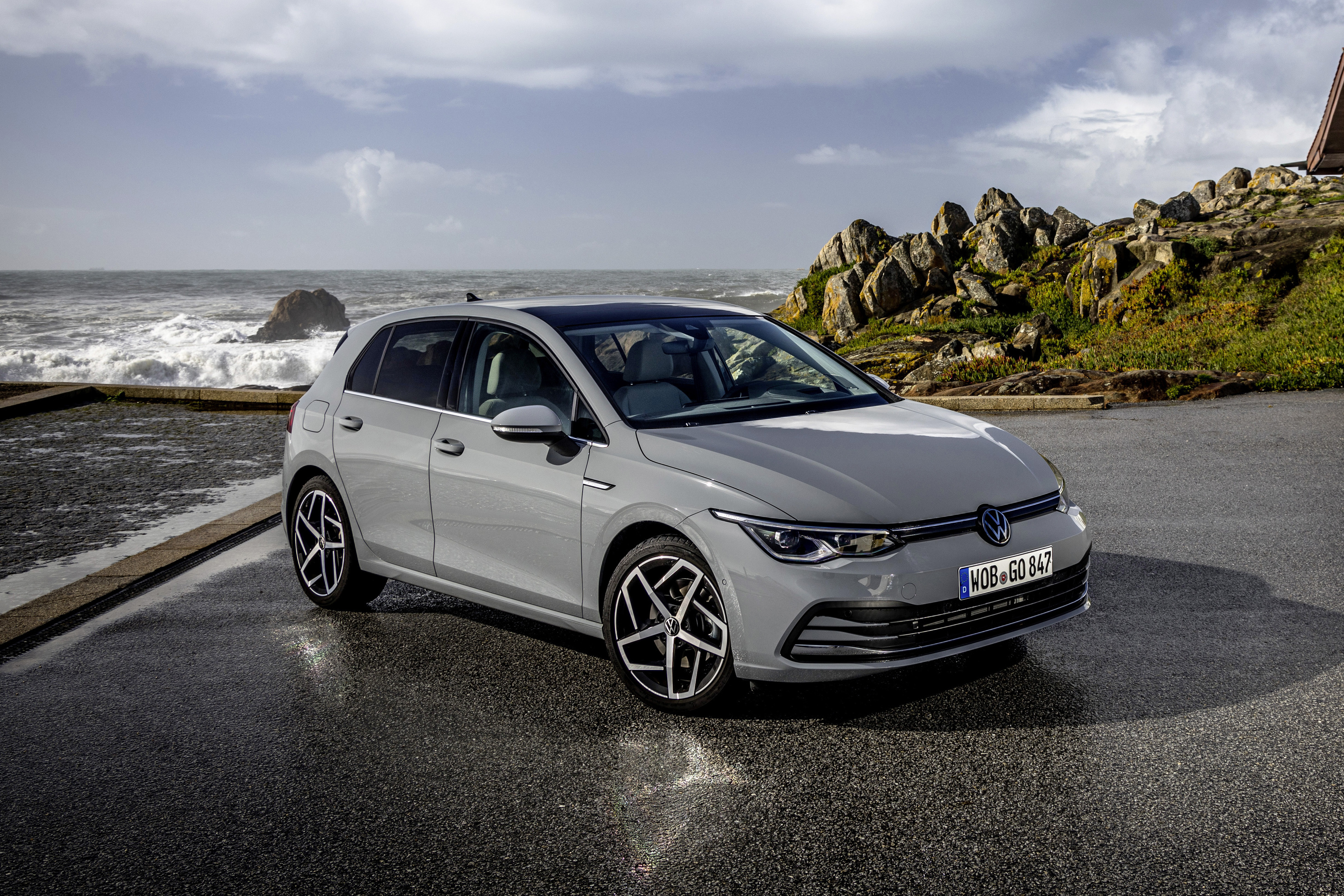
The Volkswagen Golf was never known for controversy, but the Golf 8 wasn’t as well-received as it should have been in 2020. It was quite the departure from its predecessor, especially when it came to the interior which got a large touchscreen that replaced nearly all traditional buttons. Some owners suffered usability issues, which prompted Volkswagen to fastrack this latest mid-life update – known as the Golf 8.5.
Ushering in a more user-friendly touchscreen, fewer digital buttons and an impressive new plug-in hybrid model capable of more than 60 miles on a charge, it should get Volkswagen back on the right path once again.





